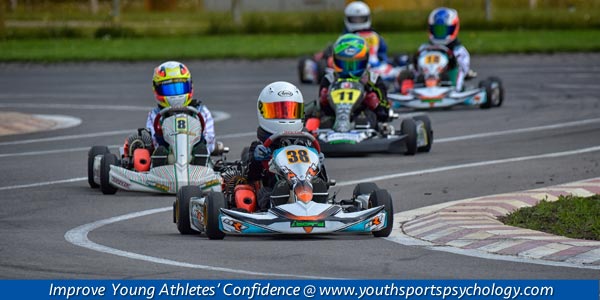
Help Sports Kids Have Fun In Sports
Don’t bring a Nobel-Prize winning professor to teach your young sports kids the physics behind throwing a ball. Instead, focus on games like “Simon Says,” and “Hokey Pokey.”
That’s the word from VJ Stanley, a retired college hockey coach and youth sports coach of 30 years who is author of “Stop The Tsunami in Youth Sports,” He says that the youth sports scene right now is a “man-made disease” that can be fixed–and we need to start with the youngest kids.
His most important tip:
Make sure the kids are having fun. Yeah, yeah, you say. You’ve heard this before. But Stanley in Part Two of our interview with him, shared lots of great details about how to ensure young kids have fun.
Young kids will have fun if you don’t focus on the score but instead play lots of games that appeal to them. These include Simon Says and Hokey Pokey.
“Keep in mind that they’re not mini-adults or remote-controlled robots,” he says. “Playing Simon Says in sports is all about young kids being active and using their bodies. Play games with them, the sillier the better, and they will dictate their interest. It’s all about them.”
Help Young Athletes Enjoy Sports
Focusing on awareness and teamwork is key, Stanley says.
“You want them to learn a little about enjoying the game, what competition is all about, and teamwork.”
When he coaches young kids, he says, their faces light up.
“To have that many kids smiling makes me happy.”
It’s also critical to focus on what’s happening right now-not on what’s going to happen when it’s time to add up the score.
“Once they’re living in the moment and having fun, it’s really great,” he says.
If coaches want to “count,” something, they might want to count how many times kids touch the ball, Stanley suggests.
“Young kids are generally terrible players,” he says. “They’re supposed to be terrible.”
And keep in mind that kids who show promise at 5 or 6 or 10 aren’t always the kids who make Division 1 later in life. “Only 10% of kids who are the best at 10 are the best at 18,” he says.
Want to learn more about how to introduce young kids to sports and ensure they stay in the game and enjoy sports for the long haul?
Expert Interview – Exclusive Audio with VJ Stanley
At Kids’ Sports Psychology, we’ve got lots of resources for you, including Part 2 of our interview with Stanley. Exclusive members of Kids’ Sports Psychology can access the full interview here:
Expert Interview – How To Help Kids Have Fun in Sports!
Kids’ Sports Psychology also provides other expert audio interviews, videos, articles, ebooks, question-and-answers and more, all designed to ensure your kids make the most of their sports experience.
Related Articles on Youth Sports:
- Parents: Do You Want Kids to Have Fun or Perform Well?
- Helping Young Athletes Have More Fun
- Why Sports Must be Fun for Young Athletes
*Subscribe to The Sports Psychology Podcast on iTunes
*Subscribe to The Sports Psychology Podcast on Spotify
Help Young Athletes Boost Confidence in Sports!
Every day, we receive letters from parents like you who want their children and teens to excel in sports. However, these parents can see fear, doubt, and frustration on the faces of their kids who struggle with the “inner” game of sports. But these parents have no idea how to help their kids overcome the worries, expectations and self-defeating thoughts that prevent their young athletes from feeling confident and successful.
You can benefit from our 15-plus years’ of work in sports psychology and sports parenting research. Now, you can tap into our secrets to sports success through a cutting-edge, 14-day program that helps young athletes overcome the top “mental game” challenges that sports parents face—and the top challenges young athletes face.


I love watching kids play sports because they are so adorable. My 6 year old told me he wants to play soccer, and I’m thinking about letting him, but I often worry that he won’t like it if he turns out to be bad at it. I am a single mom and I have to carefully track my finances. I don’t mind paying for him to play soccer but I just want to make sure that he is good at it. I like how you point that “Young kids are generally terrible players. They’re supposed to be terrible,” and that playing the sport is about “being active and using their bodies.” This gives me a new perspective to consider when I decide if I let my son play.